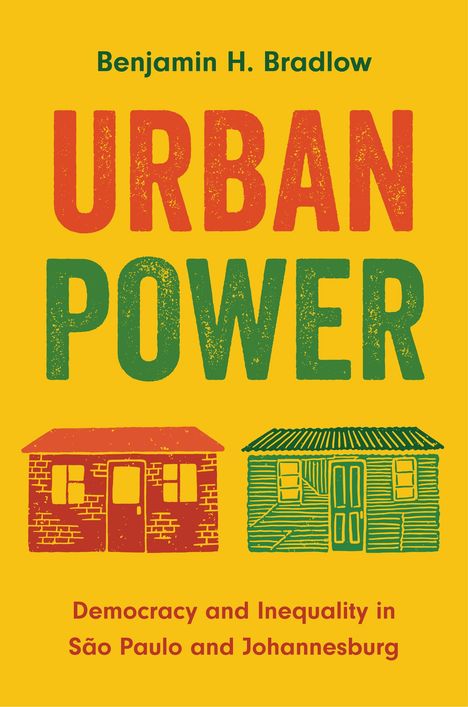Benjamin H Bradlow: Urban Power, Kartoniert / Broschiert
Urban Power
- Democracy and Inequality in São Paulo and Johannesburg
(soweit verfügbar beim Lieferanten)
- Verlag:
- Princeton University Press, 10/2024
- Einband:
- Kartoniert / Broschiert
- Sprache:
- Englisch
- ISBN-13:
- 9780691237121
- Artikelnummer:
- 11780071
- Umfang:
- 256 Seiten
- Gewicht:
- 399 g
- Maße:
- 234 x 156 mm
- Stärke:
- 15 mm
- Erscheinungstermin:
- 22.10.2024
- Hinweis
-
Achtung: Artikel ist nicht in deutscher Sprache!
Klappentext
Why some cities are more effective than others at reducing inequalities in the built environment
For the first time in history, most people live in cities. One in seven are living in slums, the most excluded parts of cities, in which the basics of urban life---including adequate housing, accessible sanitation, and reliable transportation---are largely unavailable. Why are some cities more successful than others in reducing inequalities in the built environment? In Urban Power , Benjamin Bradlow explores this question, examining the effectiveness of urban governance in two "megacities" in young democracies: São Paulo, Brazil, and Johannesburg, South Africa. Both cities came out of periods of authoritarian rule with similarly high inequalities and similar policy priorities to lower them. And yet São Paulo has been far more successful than Johannesburg in improving access to basic urban goods.
Bradlow examines the relationships between local government bureaucracies and urban social movements that have shaped these outcomes. Drawing on sixteen months of fieldwork in both cities, including interviews with informants from government agencies, political leadership, social movements, private developers, bus companies, and water and sanitation companies, Bradlow details the political and professional conflicts between and within movements, governments, private corporations, and political parties. He proposes a bold theoretical approach for a new global urban sociology that focuses on variations in the coordination of local governing power, arguing that the concepts of "embeddedness" and "cohesion" explain processes of change that bridge external social mobilization and the internal coordinating capacity of local government to implement policy changes.

